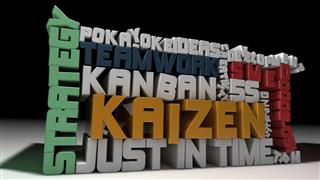
Basic management skills include a set of abilities that an ideal manager needs to possess. Do you want to get an idea of what the basic management skills are? Then read on.
Management consists of five processes, namely, planning, organizing, leading, coordinating and controlling. Management is basically an organization activity, the organization of work and resources, to achieve success. The successful organization of work and resources requires careful planning. Effective planning involves foresight. One should be aware of the potential threats and be prepared to fight them. It is important to lead the team and guide the team members towards success.
While organizing and leading a group of people, management plays a vital role in achieving coordination among members and in exercising control. Management is such a vast subject that it becomes difficult to restrict the definition of management to a few processes.
Management is complex and hence it is not right to confine its description to some management processes. Some prefer to define management as ‘all that managers do’. But what does a manager do? A manager is responsible for the successful implementation of business processes by putting into use, his management skills. A good manager needs to adhere to the fundamental management principles and possess basic management skills.
Planning
Planning is a process of taking decisions for the future. Planning is the first step towards the successful implementation of a process. Planning requires one to understand the purpose of a task to be done or a process to be implemented. Followed by a detailed understanding, one needs to allocate resources and assess the time required for the process or task completion. Planning requires a manager to take into account the potential threats to the successful execution of a process. This includes taking into account, the unavailability of resources, an unexpected delay in a certain step or a budget collapse. Ideally, there should be a fallback for every plan. A manager should think on the lines of ‘what if this plan fails’ and have two plans as alternatives to one another. This leads a business towards a fail-proof strategy.
Leadership
This is one of the most important management skills. Leadership comprises efficient organization of resources in achieving a company’s goal. Leadership involves the management of human resources by assessing the strengths and weaknesses of each member of the team. It is about leading people and guiding them towards the accomplishment of a common goal. Leadership includes allocation of work to the resources, planning for the implementation of tasks assigned and helping the team with task completion.
Team Building
This is another basic management skill that includes dealing with people, the most important resource of an organization. Encouraging the team members to come up with ideas and allowing them to make mistakes and learn from them can be described as a team building skill. To build a team, one needs to foster team spirit in all the team members. For the team to feel motivated to work, it is important for a manager to cater to their expectations, recognize their strengths and understand where they lack. The building of a team is about building team spirit in the members. The skill lies in knowing the team and encouraging the members to take initiative and participate in every venture of the company.
Communication and Presentation Skills
Even after acquiring domain knowledge and the technical skills and confidence needed to manage a team, something a manager may lack is soft skills. People skills are equally important in management. Soft skills include communication and presentation skills. A manager should be open, approachable and willing to communicate. He should be able to accept constructive criticism. It is important for a manager to communicate his/her plans to the team and accept the team members’ inputs. Communication is a two-way activity and for it to remain so, a manager needs to possess listening skills. They help a manager understand his/her team members, invite their participation and earn their respect. Good presentation skills help a manager communicate with his team. ‘How you communicate’ is as important as ‘what you communicate’ So, presentation skills definitely matter.
Decision-making Skills
Many a time, quick decisions have to be taken. In such cases, it becomes necessary for a manager to grasp the situation, think about what can be done and analyze the consequences of his decision. A problem-solving approach is also considered as one of the basic management skills. To look at a situation analytically, one needs to have a problem-solving approach. One needs to reason every consequence and come up with the pros and cons of the decision. A manager needs to be a quick thinker. For taking the right decision, one cannot afford to panic. One has to keep his/her cool, be aware of the results of his decisions and be prepared for them. In a business there are times of both successes and setbacks. A manager should be equipped to handle both. Hence while it is necessary to distinguish between the ‘right’ and the ‘wrong’, it is also necessary to be ready to accept the ‘wrongs’ and deal with them.
Delegation Skills
Effective delegation is an important part of management. Delegation involves assigning tasks to the right people in a team. This implies that a manager is well aware of the strengths and weaknesses of his team members and knows exactly which jobs can be done best by which team members. Delegation is instrumental in developing effective successors. An important role a manager plays is in developing his successor in the organization. The individual being delegated tasks gets the opportunity to understand bigger responsibilities and develop himself. For a manager to be able to shoulder greater responsibilities, he needs to delegate some of his responsibilities to the subordinates. Delegation also encourages promotion.
Time Management
Effective business management requires good management of time. For the successful implementation of a process, or the completion of a task, a manager needs to formulate short-term goals with deadlines for achieving them. He needs to schedule his and his team’s tasks so that deadlines are met. Based on the availability of time and resources, a manager needs to allocate the right amount of time for each task. The entire plan needs to be executed in a stipulated period. This needs a good sense of time and time management skills.
In short, management skills are about taking the right decisions at the right time and getting them executed by the right people. Thus, management skills are indeed all those things that management professionals do.


